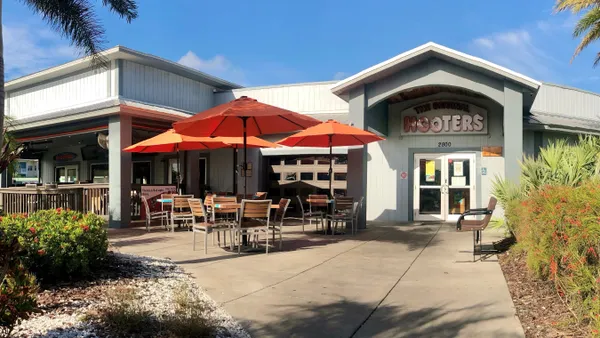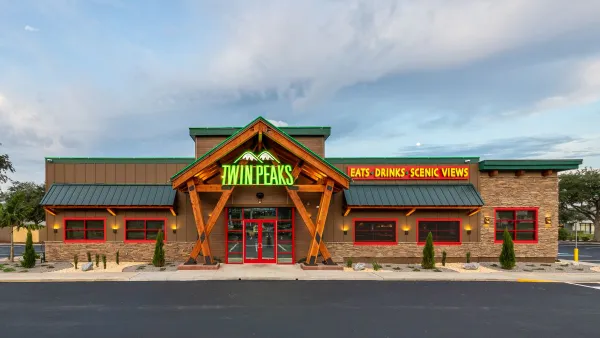The pandemic forced changes in the restaurant industry that have transformed the business model for the long term.
The shift toward off-premise consumption, the need to deploy labor more efficiently, and technological innovation will all play outsized roles in restaurants' success during the decade ahead, according to the National Restaurant Association's Restaurants 2030 report.
Restaurants had no choice but to implement new ways of doing business during the last two years in order to survive. They continue to refine their operations to adjust to consumer demand for takeout and delivery, a tight employment market putting pressure on costs and an unpredictable supply chain forcing operators to rethink their menus.
At the same time, restaurants must also focus on meeting consumer demands for high-quality, innovative menu items, as well as more clean-label, sustainable and plant-based ingredients.
Restaurant operators will need to continue to adapt to these changes to be successful in 2022 and beyond.
Here are some of the ways restaurants can adjust their approach to optimize their sales and profit potential going forward:
Rethink your procurement strategies
Consider forming more direct buying relationships with specialty suppliers so you don't have to rely on distributors for all your products.
Copper Branch, a chain of vegan quick-service restaurants with locations in Canada, Europe and the U.S., began staging competitions for small suppliers to pitch their products during the pandemic. It has resulted in generating some new partnerships, said Trish Paterson, CEO of Copper Branch.
She plans to continue seeking small, innovative suppliers to work with directly in the year ahead, she said. The competitions are rewarding in part because they are philanthropic, allowing the company to support innovative new companies seeking to gain traction in plant-based foodservice. Copper Branch helps the companies with issues such as logistics and distribution challenges.
"It's fun to work with these new and up-and-coming companies," said Paterson. "We'll absolutely continue to do that kind of sourcing. It supports our mission to collaborate in the industry and also helps us to drive creative, amazing new menu items."
Buying from smaller suppliers can have its drawbacks — pricing can be challenging, for example, and distribution might not be consistent — but the rewards come from having unique, innovative companies as partners that value your business.
Provide a rewarding workplace to attract and retain good employees
Copper Branch has also tackled the tight labor market by seeking to recruit workers, including many who are entering the labor force for the first time, with its strong ethos around plant-based eating and sustainable business practices, said Paterson.
"We've been forced to increase wages, for sure, but in addition to that, we've really pivoted our thinking around making sure we are providing meaningful work for these kids," she said. "There's a lot of meaning to our restaurants. It's not just food, it's really world-changing — the way we're packaging things and the way we're saving not just the environment, but people's health and animals."
Paterson said she believes that focusing on the company's sustainable and plant-based positioning has helped in recruiting young workers who share the company's beliefs and want to be a part of the change it seeks to bring to the world.
Innovate to meet changing consumer demands
When Food Network veteran competitor Chad Rosenthal, chef/owner of The Lucky Well restaurants, was faced with dining restrictions during the pandemic, he resurrected an herb-brined, fried chicken sandwich and made it the centerpiece of a new concept geared for off-premises consumption.
Whimsically named Motel Fried Chicken, the new brand is now on a growth tear, expanding both its physical presence and its menu, including a new plant-based chicken alternative made with a product that mimics the taste and texture of whole-muscle chicken breast.
Rosenthal is working with Elohi Strategic Advisors and Tindle, the maker of the plant-based chicken substitute, to roll out his new sandwich to new locations as he expands the Motel Fried Chicken brand. He has added fryers to his other restaurants to accommodate the new concept and has been selling his sandwiches nationwide via shipping platform Goldbelly.
Motel Fried Chicken is also expanding with company-owned locations around Chicago, and is launching a franchising effort. In addition, it is moving into other markets through a partnership with Reef Technology, which operates ghost kitchens throughout the U.S.
At the same time, Rosenthal is working with Elohi to promote the plant-based chicken substitute, which he said cooks up to look and taste remarkably like the real thing.
"One of my concerns with some of the plant-based meats is that they have a weird aftertaste, but this one doesn't," he said. "And you can mix seasonings right into it. It's pretty amazing."
Keep it simple
Another lesson from the pandemic is to keep the menu and operations as simple as possible to minimize labor costs and streamline inventory and procurement.
At Motel Fried Chicken, for example, Rosenthal created a fried chicken sandwich that was carefully developed, but that will be easy to replicate as the company scales up.
"It's very simple and it's very trainable — we brine the chicken in an herb solution overnight, we dredge it and we fry it," he said. "It's such a simple, easy process, and the end result is this great little sandwich that is hard to mess up."
The sandwiches are finished with house-made pickles, Kewpie mayonnaise and a Martin's potato bun.
The restaurant industry has been forever transformed by the pandemic, but opportunities abound for operators that implement and execute strategies now that will help them succeed in the long term.
The experts at Elohi Strategic Advisors can help restaurants navigate the challenges of the future.










